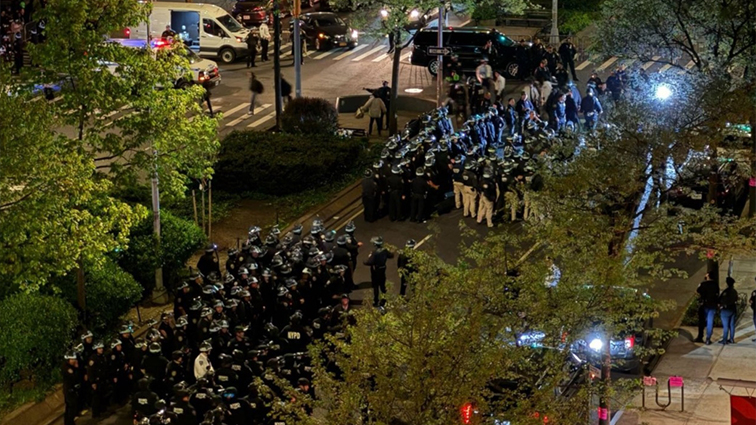The U.S. House of Representatives, with members of both the Democratic and Republican parties, passed the resolution to expand the Department of Education’s definition of “anti-Semitism.”
The measure came in response to student demonstrations at American universities in support of Palestine, which have been expanding dramatically and effectively in recent weeks.
U.S. officials accused the students participating in the demonstrations of committing acts classified as “anti-Semitic” and of raising slogans attacking Israel.
The bill has sparked controversy, with some critics arguing that it is being used to curb free speech on U.S. universities.
The resolution defines “anti-Semitism” as “a particular perception of Jews that can manifest hatred towards them,” and “rhetorical and material manifestations of anti-Semitism target Jewish or non-Jewish individuals, their property, community institutions and places of worship.”
For the text to become legislation, the Senate must approve it, which has not yet been confirmed, before it can be sent to President Joe Biden for signature and publication.
Israeli government ministers have demanded the release of videos from the October 7 demonstrations to chant counter-messages to pro-Palestinian rhetoric, according to Israeli media reports.
Israel’s economy minister, Nir Barkat, stated that “American public opinion poses a threat to Israel’s existence.”
The circle of demonstrations demanding an end to the war on Gaza and the cessation of financial and military aid to Israel expanded, as it spread to more than 79 American universities and colleges, in addition to other Western and Arab countries such as Canada, France, Germany, Britain and Lebanon, amid confrontations and arrests against student demonstrators, in addition to increasing threats.
An American teenager almost caused a helicopter crash with a laser
